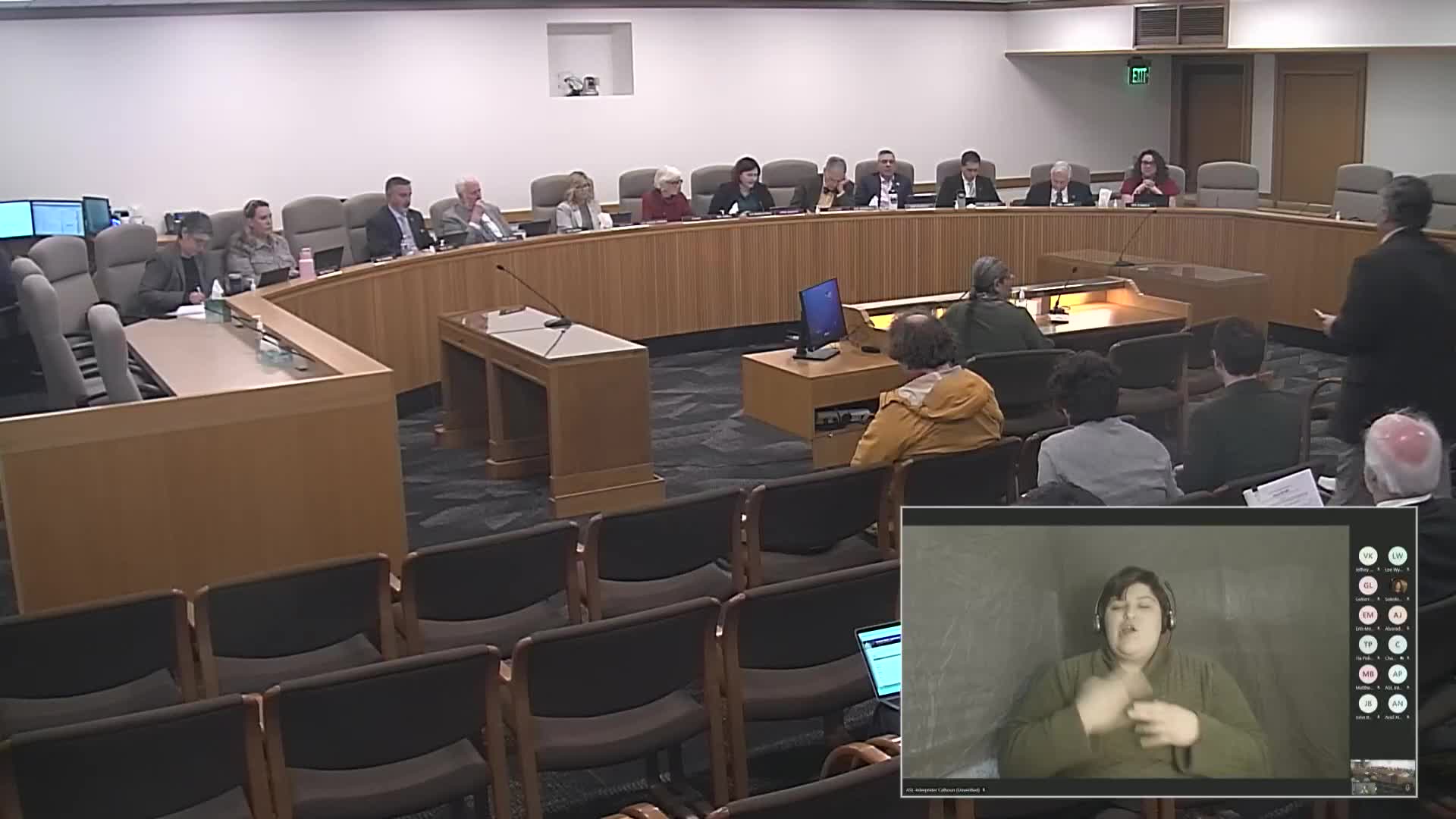Bill would let tenants accept new housing and give 30‑day notice after landlord issues 90‑day termination
Get AI-powered insights, summaries, and transcripts
Subscribe
Summary
House Bill 2,134 would allow tenants in fixed‑term tenancies who are served a 90‑day termination by a landlord to give their own 30‑day written notice and vacate earlier; supporters said it prevents double rent burdens and makes relocation feasible, while property groups warned it would undermine fixed‑term lease certainty.
Representative Tana Sanchez introduced House Bill 2,134 during the Feb. 17 meeting of the House Committee on Housing and Homelessness, saying the measure would allow a tenant who has been given a landlord‑initiated 90‑day termination to provide their own written 30‑day termination and vacate on that 30‑day date.
Sanchez said the bill seeks to prevent tenants from being forced to pay two rents when a landlord gives a 90‑day notice but the tenant finds replacement housing sooner. "To force someone to pay twice the rent, I think, is unconscionable," Sanchez said.
Supporters included John Pugsley, a single parent who described losing an ideal rental because he could not afford paying two months of rent, and tenant advocates including the Community Alliance of Tenants and Oregon Law Center, which said the change would improve housing stability for tenants who are not at fault.
Opponents included Multifamily Northwest, which warned that allowing early termination after a landlord‑initiated notice could undermine fixed‑term leases, increase turnover and raise operating costs. Jonathan Claley said fixed‑term leases provide predictability for both tenants and housing providers and that the bill might discourage landlords from offering fixed‑term options.
Supporters and legal advocates said the bill applies only when the landlord initiates a 90‑day termination for reasons other than tenant fault and is intended to protect compliant tenants who must relocate through no fault of their own. Sybil Hebb of the Oregon Law Center said the bill “is designed to only apply…when a landlord is making the choice to use a 90‑day notice of termination based on the landlord's decision about how they want to use their property differently.”
Committee members asked whether the proposed change would amount to a lease‑break option and how landlords would recoup re‑letting costs; proponents said the change is narrower — it applies only to landlord‑initiated terminations and preserves rent due for the 30‑day notice period the tenant gives.
The committee closed the public hearing on HB 2,134 after receiving both supportive and critical testimony; no vote was taken on Feb. 17.
